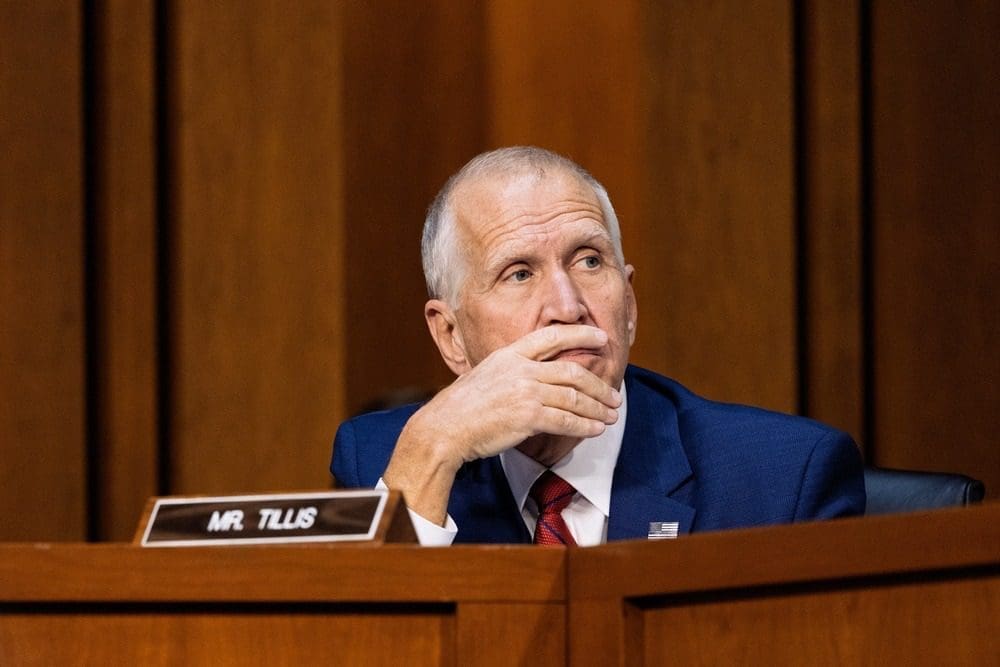
In a rare moment of near-unanimity, the U.S. Senate voted 99–1 to strike down a provision that would’ve blocked states from regulating artificial intelligence.
The lone holdout? Sen. Thom Tillis of North Carolina.
The fight wasn’t just procedural — it was a clash between Big Tech’s lobbying power and a growing bipartisan appetite for AI accountability.
Here’s who tried to shut states out, who pushed back, and what it means for the future of AI governance.
The Provision That Sparked the Fight

Buried in a GOP-backed infrastructure bill was a clause that would’ve banned states from enacting their own AI regulations for the next 10 years.
It would’ve handed AI oversight exclusively to the federal government — effectively giving Big Tech a regulatory holiday in the name of “innovation.”
Who Tried to Block State Oversight

- Sen. Thom Tillis (R–NC) was the only senator to vote to keep the federal ban.
- Rep. Ted Cruz (R–TX) pushed the original ban in the House.
Backers claimed state laws would create a “patchwork” that stifles AI development.
In reality, it would’ve shielded companies like Meta, Microsoft, and Google from accountability.
Who Fought Back and Won

Sen. Marsha Blackburn (R–TN) and Sen. Maria Cantwell (D–WA) introduced the bipartisan amendment to strike the ban.
All 99 other senators voted to support their amendment.
State attorneys general and governors — including from California, Colorado, and Utah — voiced strong opposition, citing consumer protection and data privacy.
What Big Tech Wanted

Tech giants lobbied heavily for the moratorium.
Meta, Amazon, Google, and Microsoft all wanted uniform federal rules — rules they could help shape. Their fear? That states like California would lead with stricter laws on AI bias, surveillance, and data use.
What the States Said

State leaders warned the moratorium would freeze them out of AI oversight just as real-world harm is emerging.
California, New York, and Colorado have already begun drafting or enacting AI-specific laws.
Their message: if Congress won’t act fast, we will.
The Political Fallout

The vote isolated Tillis and exposed Big Tech’s shrinking influence in the Senate.
Even lawmakers who usually lean pro-business crossed over to protect state power. The rare 99–1 vote sent a clear message: Washington isn’t handing Silicon Valley a free pass this time.
Why the Moratorium Failed

Three reasons:
- Bipartisan fatigue with tech monopolies.
- State pressure — no one wanted to be seen silencing their own AGs and governors.
- Timing — after a wave of AI scandals, public trust is low and lawmakers didn’t want to look soft.
The Future of AI Regulation

Now that states are free to legislate, expect a flood of AI bills touching on:
- Algorithmic transparency
- Deepfake labeling
- Automated hiring & discrimination
- Facial recognition limits
- Data privacy protections
Federal regulation is still coming — but it’ll now have to compete with state-level action.
What This Means for You

This isn’t just political theater.
State laws are often where tech accountability starts. Consider GDPR in California before it went global.
By killing the moratorium, the Senate just gave you a louder voice in shaping how AI touches everything from your job to your privacy.
Final Word

Thom Tillis stood alone. The rest of the Senate stood with the states.
This wasn’t a grand ideological shift — it was a practical recognition that AI is moving too fast, and people want rules now, not someday. The question isn’t if AI will be regulated anymore. It’s who gets to write the first draft.
























